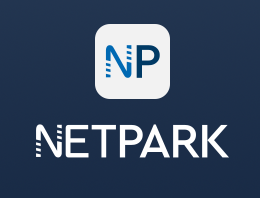Published on 28/01/2022

About the project:
According to recent studies, drivers spend an average of 44 hours a year searching for a parking space, which leads to increased costs in terms of wasted time, fuel and emissions. At the same time, various studies have shown that 44% of motorists find the parking spot searching process to be a stressful experience. On top of the above, recent reports show that carbon dioxide emissions have globally increased by over 50% since 1990, while 30% of the total CO2 emissions are generated due to traffic congestions caused during parking searches. netPARK leverages advanced ML algorithms and sensor-based technology to address parking management in smart cities and, therefore, reduce time spent searching for a parking spot; consequently, netPARK leads to lower CO2 emissions and an increased liveability index of the city. Apart from its intelligent services, netPARK brings its own sensor technology towards parking availability identification. The netPARK sensors are able to feed the underlying processing mechanisms of the software solution with availability data (parking slot status, time of status update, license plates of occupying vehicle, etc.), while they are also able to communicate with the driver’s mobile application using Bluetooth. The captured and inferred information is presented to all involved stakeholders (drivers, municipal officers, administration employees, etc.) through appropriately-structured mobile applications and web-based dashboards. On top of the above, netPARK will result in an efficient and dynamic parking paying system enabling the user to pay in advance or extend the parking duration in real time. Several payment methods are offered, including credit card, e-wallet and cash, while loyalty schemes are also under consideration.

Objectives
The main objectives of the netPARK project are as follows:
• For drivers: to have a real-time view on parking availability status around a point of interest, select the parking spot that best suits them and navigate towards it in an optimal way; to pay using several methods for a pre-selected time duration and extend their parking duration in real-time and remotely (i.e., without the need of returning to their vehicle); to schedule their activities around the city based on targeted parking availability predictions.
• For local authorities: to have real-time view on available and occupied parking spaces around the city, but also on occupied spots that haven’t been paid for; to exploit an integrated parking payment management system.
Use cases/verticals
WINGS involvement
In netPARK, WINGS will design and implement a big data management system that will maintain and handle all parking-related information coming from sensors deployed within the city. As part of this system, WINGS will develop advanced functions providing real-time information on available parking spots around the driver’s destination and statistics on occupied and available parking spots per city area based on time, day of week, special events/occasions, etc. On top of the above, WINGS will develop advanced ML algorithms that will enable the recommendation of an area in the proximity of the driver’s destination, where parking spots will most likely be available at a certain time interval in the future. Finally, the driver will be guided to a selected area so as to park their vehicle exploiting an optimal navigation system also developed by WINGS. The aforementioned functions will be offered through a mobile application for the driver.
Targeted analytics will also be offered for municipal officers and city employees through their end devices, facilitating their day-to-day duties.
WINGS prospects /exploitation
Through netPARK, WINGS will have the opportunity to extend its smart city offerings with intelligent parking management functions that are expected to substantially add to the livability of the city and improve the city conditions from an environmental air quality perspective. Following this, WINGS will identify opportunities for technology transfer by means of future collaboration with industrial partners and municipalities.
Awards & demonstration video
Σύντομη περιγραφή στόχων και αποτελεσμάτων του έργου (in Greek)
Στόχος του έργου NETPARK είναι η ανάπτυξη ενός ολοκληρωμένου συστήματος διαχείρισης παρόδιας στάθμευσης. Μέσω της ενιαίας πλατφόρμας του NETPARK δίνεται η δυνατότητα:
i. στους ενδιαφερόμενους οδηγούς να:
a) εντοπίζουν τις ελεύθερες θέσεις στους δρόμους που τους ενδιαφέρουν
b) να καθοδηγούνται μέσω της βέλτιστης διαδρομής προς την ελεύθερη θέση του ενδιαφέροντός τους
c) να πληρώνουν μέσω της εφαρμογής που θα αναπτυχθεί το αντίστοιχο αντίτιμο για όσο ακριβώς χρόνο το αυτοκίνητό τους είναι σταθμευμένο
d) να προγραμματίζουν τις μετακινήσεις με βάση στοχευμένες προβλέψεις εύρεσης κενών θέσεων στάθμευσης.
ii. στους ενδιαφερόμενους δήμους (ή/και άλλους φορείς διαχείρισης παρόδιας στάθμευσης) να:
a) έχουν real time εικόνα των κενών και κατειλημμένων θέσεων
b) έχουν real time εικόνα των θέσεων που είναι κατειλημμένες χωρίς να έχει πληρωθεί το προβλεπόμενο αντίτιμο
c) διαθέτουν ενιαία υποδομή διαχείρισης πληρωμών.
Στο παραπάνω video παρουσιάζεται η εφαρμογή και η λειτουργικότητά της, η οποία αναπτύχθηκε στο πλαίσιο του έργου.


